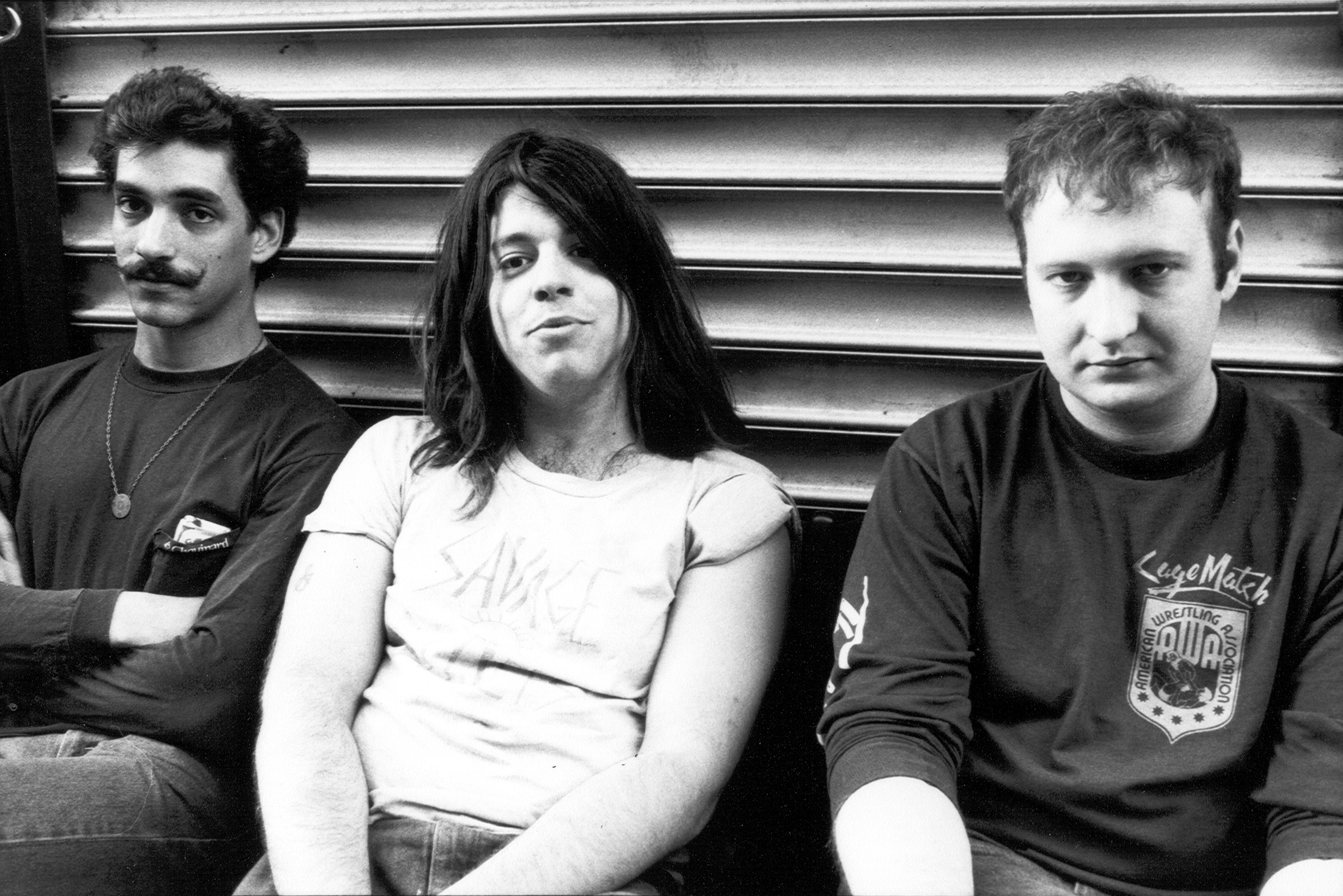Bob Mould
Bottom of the Hill
San Francisco, CA
Friday, February 24, 2012
He helped define alternative rock with hardcore/power-pop trios Hüsker Dü and Sugar, but Bob Mould is still the kind of guy who schleps his own equipment before taking a proper entrance. Punk rocker, World Champion Wrestling script writer, autobiographer, and 51-year-old gay San Franciscan, Mould is what the Mickey Rourke character in The Wrestler never could be — an emotionally mature adult who can still play a young man’s game. With his close-cropped hair, full beard, and gym-toned bulk, he’s the rare middle-aged rocker who actually looks better than he did during his cultural heyday, and having long ago quit drinking, drugs, and cigs, he sings better too. With nothing more than a one-two-three-four, he began the opening track on his most popular album, Sugar’s 1992 college radio staple Copper Blue, and for the first time ever, he — together with Jon Wurster of Superchunk on drums and ex-Verbow guitarist Jason Narducy on bass — played the disc in full, in sequence.
This being Bob Mould, he did it at Bottom of the Hill, an unassuming 350-capacity club where Alanis Morissette once played Jagged Little Pill a month after release, and timed it for Noise Pop, a humbler San Francisco version of SXSW that’s co-produced by his manager. Having just done a droll interview for SF Weekly where he commented on the small but growing number of nudists strutting through the historic Castro neighborhood in which he now lives (sample quote: “I love cock rings too, but there’s a time and place”), Mould could’ve packed a theater ten times the size. In fact, Blowoff, the multi-city gay dance party he co-hosts with fellow DJ/producer Rich Morel, took over Boz Scaggs’ much larger club Slim’s the very next night. Unlike similar indie festival showcase gigs, this one wasn’t jammed with jaded bizzers: Aside from the wobbling 6’5″ drunk dude threatening to flatten me throughout, the 30/40-something fans responded reverently: Through his various guises, Mould had soundtracked their lives.
Although its critical standing is dwarfed by Hüsker classics like Zen Arcade and New Day Rising, Copper Blue is actually the album where everything came together for this guitarist. It’s his own Nevermind; there’s never a moment where the songwriting or musicianship falters, and its vivid production mirrors his authorial voice. Sequenced with the narrative and musical arc of a symphony, Copper Blue builds, peaks, plateaus, and subsides via its creator’s command of ’60s AM radio pop, ’70s classic rock, ’80s hardcore, and early ’90s grunge. Just like Nirvana’s milestone, it’s not a happy record; all the Mould motifs like romantic apprehension and violence and loss are there in full force. But Mould looks back on it fondly because everyone from his bandmates to his record company to the culture at large supported him in a way that he didn’t get during the alcoholic childhood and mutually abusive Hüsker years unsparingly documented in last year’s autobiography, See a Little Light. And because he’s done the right kind of growing up since its inception, he could now present Copper Blue with tough, hard-won love.
Like Hüsker Dü did in 1987 for its double-LP Warehouse: Songs and Stories, he and his band played the disc with minimal pauses; a heartbeat after Wurster grabbed his crash cymbal for the abrupt ending of relatively restrained album opener “The Act We Act,” the threesome plunged into the underwater murder tale “That’s a Good Idea,” which lead into the warmer but still anguished “Changes.” One moment he’d be beaming like giddy schoolboy, the next he resembled an angry Amish. Before “The Slim,” he swapped one Fender for another with alternate tuning, and the pause set up the album’s emotional crux. Unlike the other songs, which he played exactly as written except for some “da-da-dah”s that substituted for guitar overdubs, this one started significantly slower and quieter, and then gradually built until it hit its familiar tempo while going way beyond its recorded intensity. Written when AIDS was almost always a death sentence, it’s always been about a man watching his lover die from HIV and wondering when the virus will also claim him. But before a crowd that’s endured similar losses, it here took on the power of collective mourning.
Having played the whole album with nary a word to the audience, Mould returned to introduce his musicians and debut two songs from his nearly completed next solo project; “Round the City Square,” which seemed to comment on the singer’s adopted home, and “The Descent,” a quintessentially Mould-ian speedy and tortured love ballad. “Let’s end with a party song,” he quipped before launching into Cheap Trick’s “Downed” which is, of course, an emotional and musical blueprint for all of Copper Blue. “I’m gonna live on a mountain way down under in Australia / It’s either that or suicide,” he wailed, as always, with a conviction that suggests he’s not faking.





